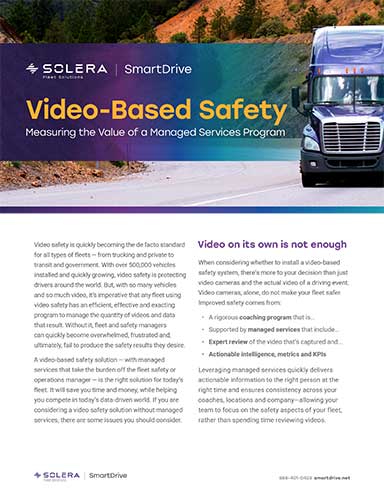ATA warns of ‘tangled mess’ due to latest Labor Department independent contractor ruling
A new regulatory finding by the Labor Department will result in a “tangled mess” for trucking’s estimated 350,000 independent contractors, the nation's largest trucking lobby is warning.
A new regulatory finding by the Labor Department will result in a “tangled mess” for trucking’s estimated 350,000 independent contractors, the nation's largest trucking lobby is warning.
In a hotly debated rulemaking within trucking circles, the Labor Department is planning to shift the way it handles an economic reality test OK’d by the Supreme Court.
The rule rescinds the 2021 Independent Contractor Rule, which determined that independent contractors are not employees under the Fair Labor Standards Act. Under the 2021 Rule, independent contractors were not subject to minimum wage, overtime or recordkeeping requirements.
“Instead of using the ‘core factors’ set forth in the 2021 IC Rule, this final rule returns to a totality-of-the-circumstances analysis of the economic reality test in which the factors do not have a predetermined weight and are considered in view of the economic reality of the whole activity,” the filing said.
The 2021 Independent Contractor Rule was developed under former President Donald Trump. This latest change underscores the differences in labor policies between the former Trump and current Biden administrations.
The change immediately was blasted by American Trucking Associations President and CEO Chris Spear, who called the change “un-American” and predicted chaos for the more than 350,000 owner-operators in trucking.
“I can think of nothing more un-American than for the government to extinguish the freedom of individuals to choose work arrangements that suit their needs and fulfill their ambitions,” Spear said in a statement.
More than 350,000 truckers choose to work as independent contractors, Spear said, because of the economic opportunity it creates and the flexibility it provides.
“It is enabling them to run their own business and choose their own hours and routes,” Spear added. “That freedom of choice has been an enormous source of empowerment for women, minorities, and immigrants pursuing the American Dream.”
The trucking industry has used independent contractors since the inception of interstate trucking, and court decisions over the last 90 years have continually reaffirmed the legitimate role ICs play in the economy.
“It's unfortunate that the (Biden) administration has chosen to replace a clear and straightforward standard with a tangled mess that weakens our supply chain and undermines the livelihoods of hundreds of thousands of truckers across the country,” Spear said.
ATA said the “coordinated release” of this rule with the renomination of Julie Su to lead the Department of Labor is proof positive that the Administration is doubling down on destructive policies that eliminate choice and opportunity for our workforce.
“Had Su actually taken the time to talk to independent contractors, she’d know firsthand what a misguided rule this really is. That is exactly why we opposed her nomination before and why we will continue to oppose it now. Radical California agendas have no place in federal policy,” Spear added.
The new rule notes six factors involved in the classification:
- worker’s opportunity for profit or loss;
- financial stake and nature of resources a worker has invested;
- degree of permanence of the work relationship;
- degree of control an employer has over the work;
- whether the work is essential to the employer’s business;
- worker’s skill and initiative.
A precursor to the final rule, a notice of proposed rulemaking, unveiled the shift in 2022 and generated over 54,000 comments, drawing opposition from the ATA and the Truckload Carriers Association.
The National Retail Federation also criticized the finalization of the Department of Labor’s independent contractor classification rule.
Retailers maintain a wide range of business relationships with independent contractors, including billing, facility maintenance, data analysis, delivery, marketing and other critical services. These relationships have become even more important and common in a post-COVID-19 environment.
“The administration is repealing common-sense rules that clearly articulate the difference between employees and independent contractors. NRF vehemently opposes a change in this important area of law, which is both unwarranted and unnecessary,” NRF Senior Vice President of Government Affairs David French said in a statement.
“This decision will only foster confusion, endless litigation and reduced innovation,” French added. “As bad as this rule is for retailers specifically and employers generally, it is far worse for the millions of workers nationwide who cherish the opportunity to engage in independent work.”
The ruling will become effective 60 days from its publication in Wednesday’s January 10th Federal Register.













